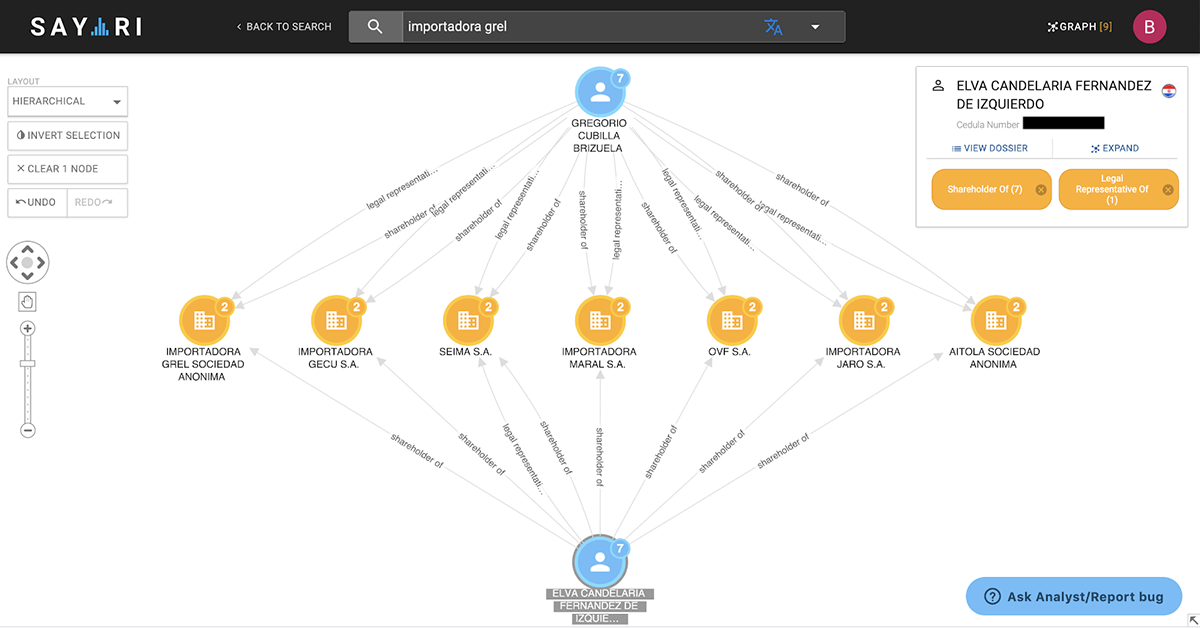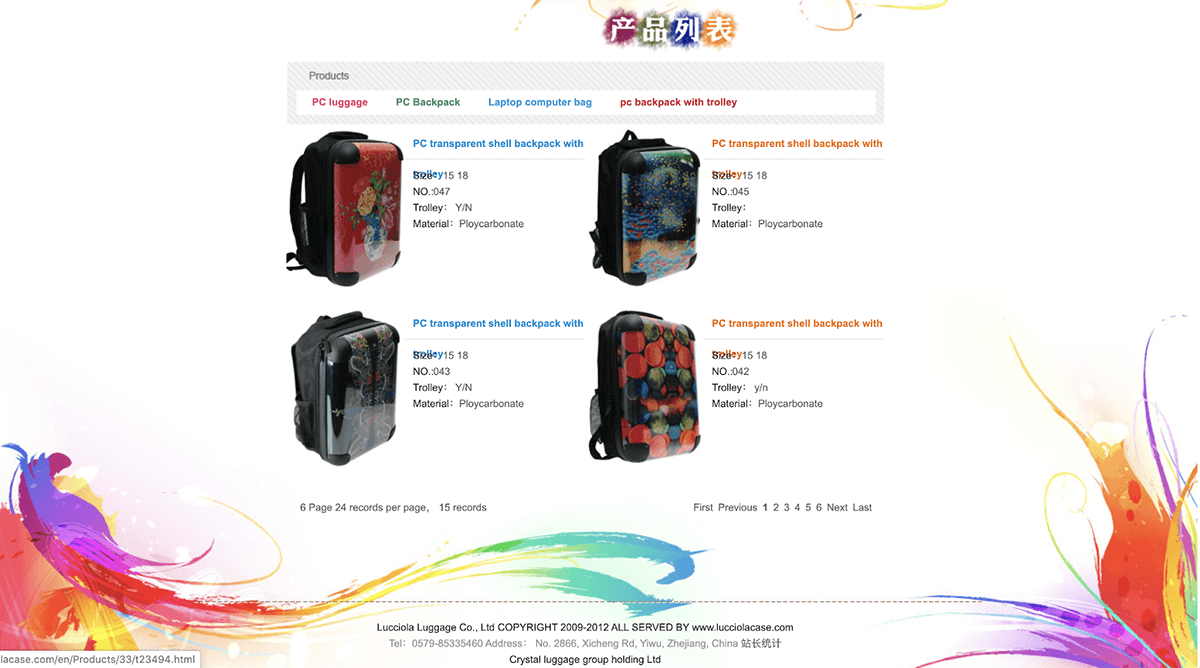A recent multimillion-dollar seizure of contraband clothing in Paraguay suggests that contraband smuggling continues to be a persistent problem affecting the country. While contraband smugglers are constantly refining their techniques to evade law enforcement, public records can be highly effective in unmasking these nefarious actors along with exposing their broader corporate networks.
In a recent investigation, we used public records to identify the owners of a company that was the alleged consignee of several million dollars in contraband clothing recently seized by Paraguayan law enforcement. Paraguayan corporate records show that these same individuals also own six other businesses that could potentially be used to import, transport, and/or sell contraband.
Paraguayan Anti-Contraband Agents Seize $10 Million in Contraband Clothing
In November 2019, Paraguayan anti-contraband agents seized $10 million in contraband clothing that had been mislabeled as toys from China. The contraband purportedly entered South America via Montevideo, Uruguay, where it then proceeded north until crossing the border between Clorinda, Argentina and José Falcón, Paraguay. The items were eventually seized in the town of Villeta, about 70 kilometers south of José Falcón.
The shipment belonged to a company called Importadora Grel S.A., according to Paraguayan law enforcement. The company’s main office is located in Ciudad del Este. However, it also has various establishments located in the capital city of Asunción, and Encarnación, according to corporate information obtained from Paraguay’s Undersecretary of Taxation.
Paraguay and the Tri-Border Area—South America’s Contraband Hub
Ciudad del Este is located along a key border crossing in what is known as the Tri-Border Area (TBA)—a region where the land borders of Paraguay, Brazil, and Argentina converge. The area is rife with various forms of illicit activity including the smuggling of illicit drugs, weapons, contraband cigarettes, among other contraband and counterfeit items. The region’s contraband trade is believed to be valued in the billions, according to the U.S. State Department’s 2019 International Narcotics Control Strategy Report.
The TBA is also a key money laundering hub, with members of the Lebanese Shiite militia and U.S.-designated terrorist organization Hezbollah known to use TBA-based businesses to launder a portion of the group’s proceeds.
Criminal syndicates, such as the Primeiro Comando da Capital—one of Brazil’s most powerful criminal organizations—have also made incursions into the region, and are purportedly involved in arms and drug trafficking.
Beyond traditional transnational criminal organizations, small family networks including wealthy businessmen with ties to local politicians and port authorities have long operated in the area, moving contraband from international markets to Paraguay, Brazil, and Argentina. Contraband has also reached the highest echelons of the Paraguayan government—former President Horacio Cartes reportedly has close links to the contraband cigarette trade via a family-run business called Tabacalera del Este.
Identifying Contraband Smuggling Networks in the Open Source
The volume of daily imports that enter a country paired with techniques used by smugglers—such as mislabeling bills of lading—make it challenging to accurately identify and target contraband networks. But public records can be effective in unmasking these illicit actors.
While the name of the company that allegedly imported the shipment of contraband was publicly identified, the identities of the owners were unknown. However, using public records, we were able to identify the 50 percent shareholders of Importadora Grel as Gregorio Cubilla Brizuela and Elva Candelaria Fernández de Izquierdo.
We also uncovered six other companies based in Paraguay owned by these two individuals. Given the recent seizure of millions of dollars in contraband clothing from Importadora Grel, these other companies could also be at high risk for mislabeling shipments from China, along with importing, transporting, and/or selling contraband.

Fig 1. Sayari Graph network showing the corporate connections of Gregorio Cubilla Brizuela and Elva Candelaria Fernández de Izquierdo.
Toy Shipments from a Chinese Luggage Company
To identify who might be the source of the mislabeled shipments of clothing received by Importadora Grel, we examined the company’s recent import data.
On Jun. 18, 2019, Importadora Grel imported over $47,000 worth of toys from a Chinese company called Crystal Luggage Group Holding Ltd, according to commercial trade data. What’s more, this shipment of toys entered Paraguay via the city of Villeta, the same location where the contraband clothing was seized in November.
However, Crystal Luggage Group Holding appears to specialize in exporting various types of luggage, specifically suitcases and backpacks, according to the company’s website. The company does not appear to be involved in manufacturing or exporting toys, raising serious questions as to whether this company is involved in exporting contraband clothing or other items.

Fig 2. Suitcases advertised on Crystal Luggage Group Holding Ltd’s website.
Other Companies in the Network Also Import Toys and Other Non-Luggage Items
Other companies owned by Gregorio Cubilla and Elva Fernández have also imported a substantial amount of toys and other non-luggage related items from Crystal Luggage Group Holding.
On Jan 23, 2020, Importadora Beca S.A. (aka Importadora Maral) imported $57,800 worth of toys from Crystal Luggage Group Holding. Likewise, Importadora Jaro imported over $27,000 worth of various toys and baby playpens from the same Chinese company in December 2019.
Given these companies’ ties—through shared ownership—to a company that has allegedly imported contraband clothing, it is possible that the bills of lading for these shipments of toys were mislabeled in order to obfuscate the true nature of the items. In the same vein, future shipments of toys to companies in the network could be an attempt to conceal the true nature of the goods, and thus warrant further scrutiny.